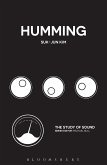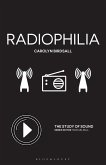Sirens are sounds that confront us in daily life, from the sounds of police cars and fire engines to, less often, tornado warnings. Ideologies of sirens embody the protective, the seductive and the dangerous elements of siren sounds - from the US Cold War public training exercises in the 1950s and 1960s to the seductive power of the sirens entrenched in popular culture: from Wagner to Dizzee Rascal, from Kafka to Kurt Vonnegut, from Hans Christian Andersen to Walt Disney. This book argues, using a wide array of theorists from Adorno to Bloch and Kittler, that we should understand 'siren sounds' in terms of their myth and materiality, and that sirens represent a sonic confluence of power, gender and destructiveness embedded in core Western ideologies to the present day. Bull poses the question of whether we can rely on sirens, both in their mythic meanings and in their material meanings in contemporary culture.
Hinweis: Dieser Artikel kann nur an eine deutsche Lieferadresse ausgeliefert werden.
Hinweis: Dieser Artikel kann nur an eine deutsche Lieferadresse ausgeliefert werden.
With sirens, both technological and mythical, sound studies pioneer and cultural theorist Michael Bull mashes up genre and periodization, fact and fiction, pop and classical, sound and silence, in this wonderful little book. The siren call, when rendered through the ear of sound studies, leads to the retelling of the part played by sirens in the stories of Homer, Kafka and Vonnegut - and there are even bit parts for Friedrich Kittler, Nancy Sinatra and Stormy Daniels. Trevor Pinch, Goldwin Smith Professor of Science & Technology Studies, Cornell University, USA, and co-editor of The Oxford Handbook of Sound Studies (with Karin Bijsterveld, 2012)








